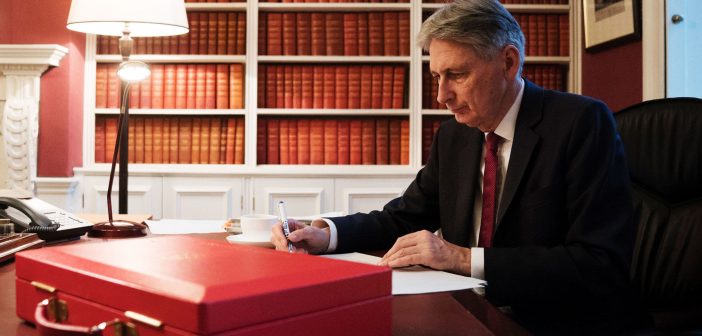It was a firefighting Budget, uncharacteristic of opening budgets of any parliament, designed to solve short-term political problems and give a nod towards a longer-term vision.
We knew the Chancellor faced an unprecedented set of economic, fiscal, parliamentary and personal political constraints on what he was able to do.
In the end, he let the fiscal numbers drift with a giveaway Budget, in order to fix the Government’s political problems with cash.
Universal Credit was afforded £300m a year to reduce the waiting time for transferring recipients to five weeks rather than six, and deal with specific issues around housing benefit. It pleased the key potential Tory rebels.
The NHS got an injection, though not as much as the service and independent analysts say it needs to keep performing during an expected winter crisis.
And then the Cabinet Brexit psychodrama had its nod with a £3bn EU withdrawal preparedness fund, the single biggest line item in the next financial year, though it was unclear exactly what this money will be spent on.
It could be designed as a negotiating signal to Mr Barnier.
The totemic policy was the cut to stamp duty for first-time buyers, loudly cheered by the Tory backbenches.
But the Government’s own fiscal watchdog undermined the stated Treasury rationale – to help young people.
The OBR brutally stated that a cut of this type would wash through the housing market, increasing house prices by the same amount or even double the £5,000 discount on stamp duty.
So the beneficiaries would be older homeowners and not young housebuyers.
But the net result was felt in the fiscal numbers, with the OBR also telling Sky News that the much-heralded Conservative promise to reach a public finance budget surplus is on course only “for 2030 not 2025”.
That is a full 15-year delay after the date first targeted by George Osborne, and 22 years after the financial crisis. And it means that the Chancellor’s newest fiscal objective is not on course to be met.
So the Government’s political problems have been dealt with by a spot of spending and tolerance of low but prolonged deficits.
The key test of this? Can it survive intact.
That would be an achievement against the low bar of the past three Budgets. And as it is designed to soothe complaints in consultations of backbenchers it should work.
The warning light is the failure to fund an end to the public sector pay cap, bar a post-dated promise on NHS nurses.
There are still enough Conservative MPs who want to see action here, and it is not cheap.
The Chancellor sold the Budget, however, as a positive statement of a Britain for a future post-industrial revolution.
Solving the housing crisis was the big offer. But there was no big bang on planning. Indeed, the Treasury wanted this, the Tory backbenches via the whips said no.
So you are left with a fundamental issue – there is little way a Government can spend five years with defensive budgets such as this, incapable of facing down the dissent of the DUP or of any subgrouping of seven Tory MPs.
What about the tough long-term decisions on social care, an almost entirely forgotten issue which dominated the election and which was a key part of the compact with the NHS?
The Chancellor’s allies in Cabinet acknowledge not all the plans on housing got through the pre-Budget process, but that Phillip Hammond has “pitch-rolled” some big picture changes.
This is the sort of Budget that is consistent with a Government seeking to tick things over, to try to deal with singular challenge of Brexit, and defer tough radical decisions it cannot get past its own backbenches – until 2019.
The real action this week is when Theresa May meets Donald Tusk on Friday. The fiscal implications of the negotiations failing are not even mentioned in the Budget. The OBR is actively avoiding trying to model the issue. Elephants in the room don’t get much bigger.
The PM and the Chancellor needed something watertight, that avoids rebellions, and U-turns from backbenchers. But a government trying to avoid offence can only go so far.

